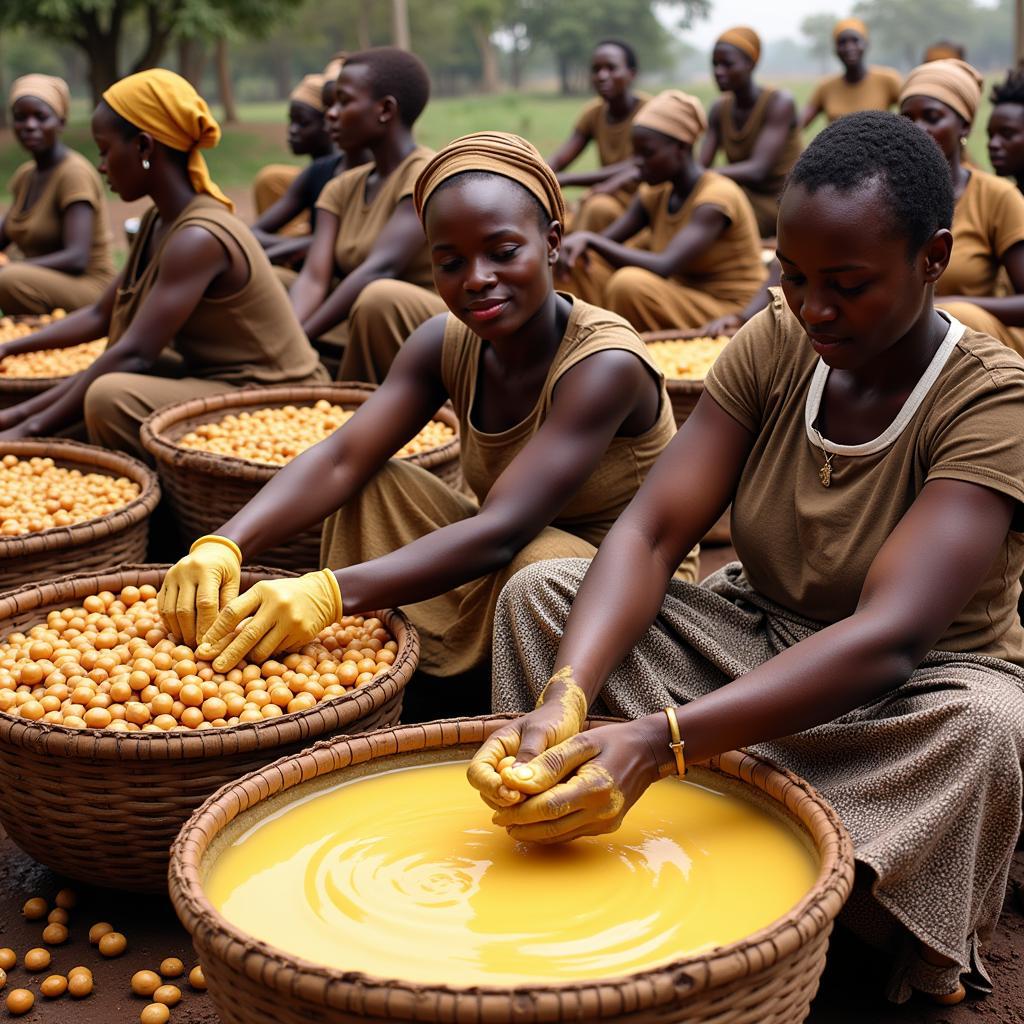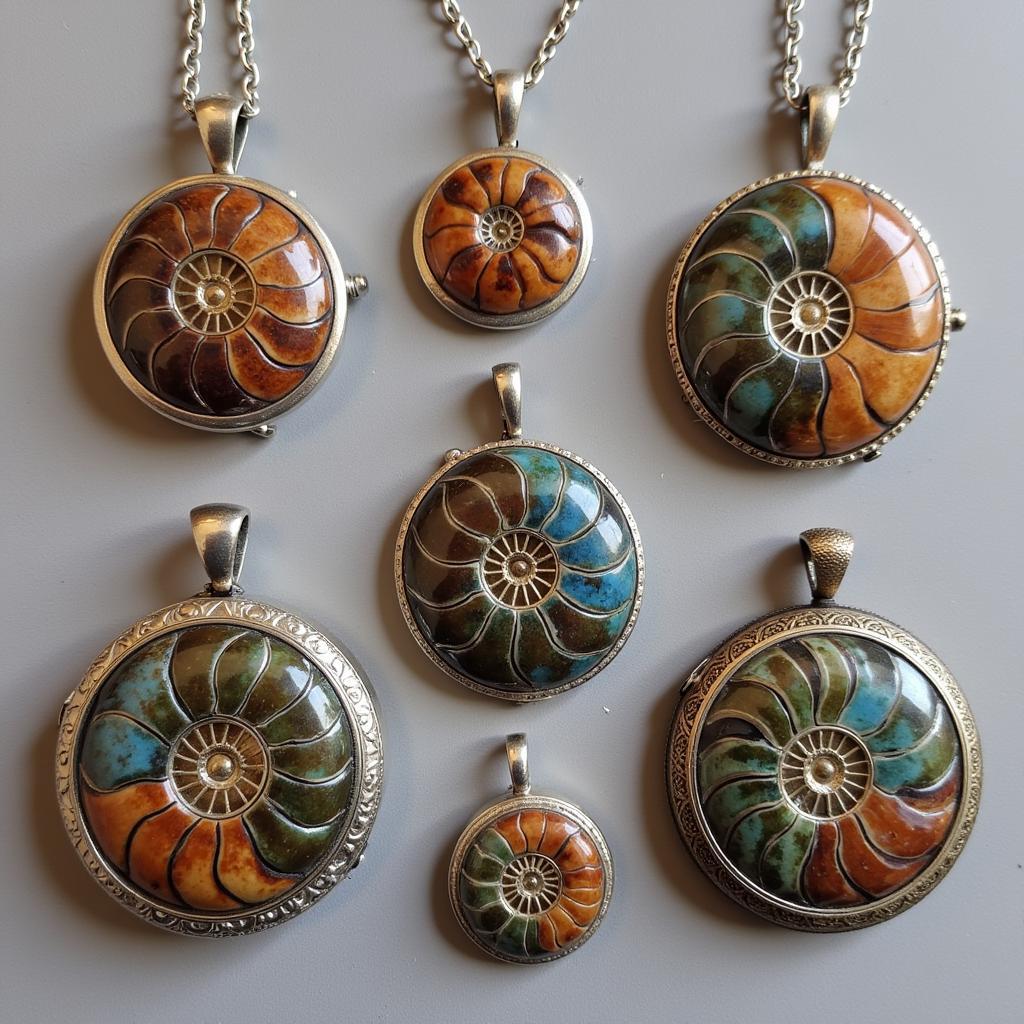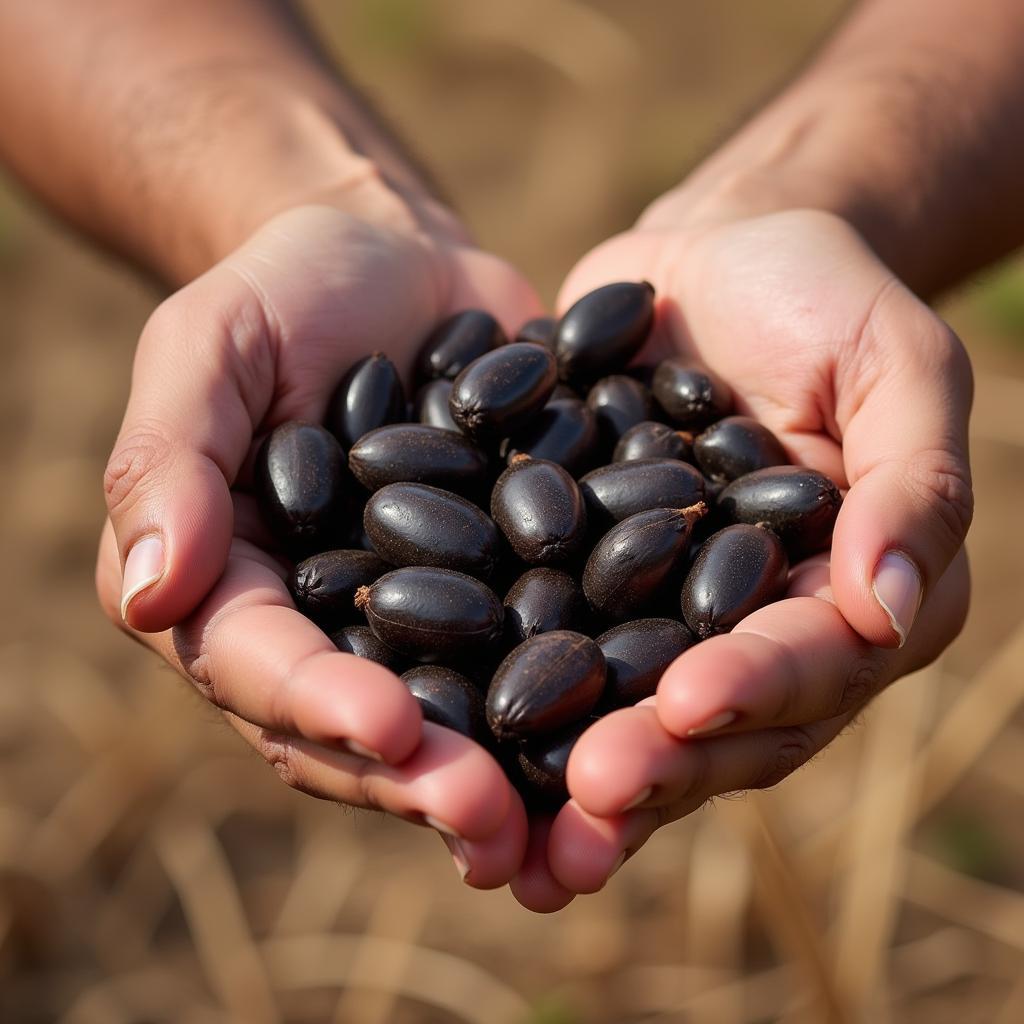Unlocking African Ancestry with 23andme
23andme African ancestry tests are gaining popularity, offering a fascinating glimpse into one’s heritage. These DNA tests can reveal detailed information about your ethnic origins, tracing your roots back to specific regions within Africa. But what exactly can you expect from these tests, and how accurate are they?
The allure of discovering your African roots is undeniable. For many African Americans, the transatlantic slave trade severed connections to their ancestral homelands. 23andme offers a bridge across this historical divide, providing a way to reconnect with a lost past. Beyond simply identifying broad continental origins, these tests delve into the rich tapestry of African ethnicities, connecting you with specific tribes and communities. After the initial excitement of seeing broad results like “Sub-Saharan African,” users often delve deeper, exploring the nuances within their results. They learn about the specific regions and tribes associated with their DNA, opening up a world of historical and cultural discovery. One helpful resource you might find is african hunter gatherer 23andme.
Understanding Your 23andme African Results
What can you learn from your 23andme African results? These tests analyze your DNA, comparing it to a database of genetic markers associated with different populations across Africa. This allows them to pinpoint your ancestral origins with remarkable precision.
- Ethnic Breakdown: The test provides a percentage breakdown of your ethnicity, showing the proportion of your DNA linked to various African regions.
- Haplogroups: Haplogroups are genetic markers passed down through generations, tracing your lineage back through maternal and paternal lines.
- DNA Relatives: 23andme connects you with other users who share DNA segments with you, potentially uncovering distant cousins and branches of your family tree.
How Accurate are 23andme African Ancestry Tests?
While 23andme’s technology is sophisticated, it’s crucial to understand the limitations of DNA testing. The accuracy of your results depends on several factors, including the size and diversity of the reference database. As more people take these tests, the database expands, leading to more refined and precise results.
- Database Limitations: The database primarily relies on samples from present-day populations. This can sometimes lead to challenges in accurately representing the genetic diversity of past populations.
- Genetic Drift and Migration: Human populations have migrated and intermixed throughout history, making it complex to pinpoint precise origins.
- Interpreting Results: It’s essential to interpret the results with caution, understanding that they are estimates based on current scientific understanding. Further research and exploration can help you contextualize your results. You can further research african hunter gatherer.
Exploring Your African Heritage Beyond 23andme
23andme is a great starting point, but your ancestral journey doesn’t end there. Use your results as a springboard for further exploration.
- Historical Records: Dive into historical archives and genealogical databases to research the history and migration patterns of the ethnic groups identified in your results. This can offer valuable insights into your family’s story. If you’re curious about 1 32 part african american person, this could be a valuable area to explore.
- Cultural Immersion: Engage with the cultures and traditions of your ancestral communities. Explore their art, music, food, and storytelling. This can help you connect with your heritage on a deeper level.
Dr. Anika Nkosi, a renowned anthropologist specializing in African diaspora studies, notes, “DNA tests provide a genetic roadmap, but it’s crucial to remember that ancestry is more than just genes. It’s a living, breathing tapestry woven through history, culture, and lived experiences.”
Why Would I Use 23andme to Explore My African Ancestry?
23andme can be a valuable tool for uncovering your African roots, offering a unique connection to your past. You can also find resources for african ancestry free.
- Reconnecting with Lost Heritage: For those whose ancestral ties were severed through slavery or forced migration, 23andme can help rebuild those connections.
- Understanding Family History: The test can provide insights into your family’s migration patterns and origins, adding depth to your genealogical research.
- Building Community: Connecting with DNA relatives can open up new avenues for exploring your family history and building connections with living relatives.
Professor Kwame Asante, a historian specializing in African history, emphasizes, “The journey of self-discovery through ancestry research is a powerful experience. It can foster a deeper sense of identity, belonging, and understanding of one’s place in the world.”
In conclusion, exploring your 23andme african ancestry results can be a rewarding and enriching experience. While it’s essential to approach the results with a nuanced understanding, these tests offer a powerful tool for unlocking your African heritage and connecting with your past. Understanding the african american descent meaning can add another layer to this exploration.
FAQ
- What is a haplogroup?
- How does 23andme determine my African ethnicity?
- Can 23andme tell me the specific tribe I descend from?
- What are the limitations of 23andme’s African ancestry test?
- How can I further explore my African heritage beyond 23andme?
- How often does 23andme update its African ancestry database?
- What privacy concerns should I consider when using 23andme?
Need support? Contact us 24/7: Phone: +255768904061, Email: kaka.mag@gmail.com or visit us at Mbarali DC Mawindi, Kangaga, Tanzania.


